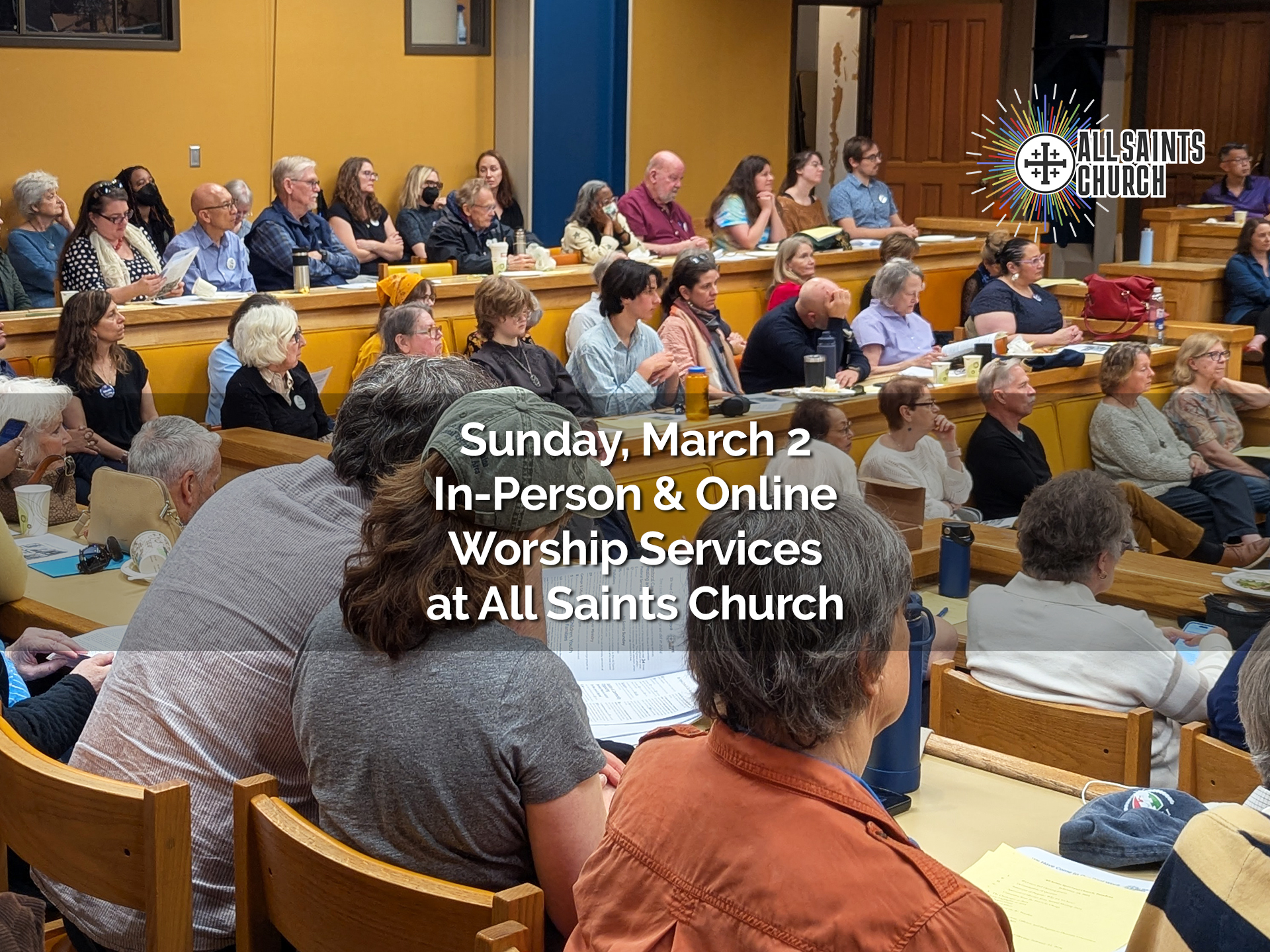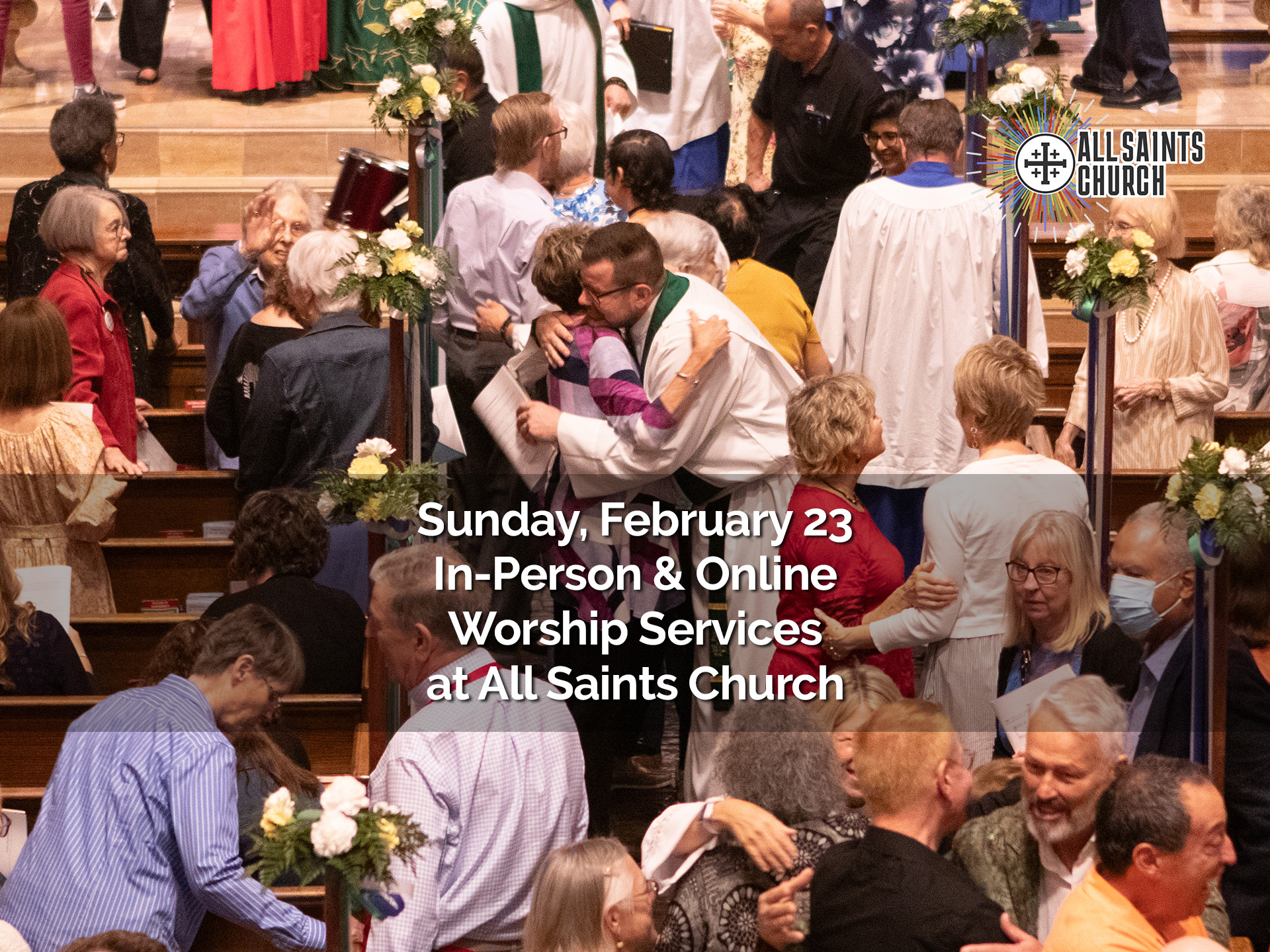“Not trusting that we are fully loved is killing us — and so we listen for the voice of the Good Shepherd telling us we are both fully known and fully loved. And that there is enough love for everyone.”
Sermon by Mike Kinman at All Saints Church, Pasadena, on Sunday, April 22, 2018.
========
I am the good shepherd. I know my sheep and my sheep know me, in the same way God knows me and I know God – and for these sheep I will lay down my life. I have other sheep that do not belong to this fold. I must lead them, too, and they will hear my voice. And there will be one flock, one shepherd.
+
If they only knew.
It’s amazing the destructive power of those four words.
If they only knew.
We may never hear them spoken aloud, but we have heard them in so many voices.
They are whispered from within and cut right to the heart.
They turn love into despair and trust into fear.
If they only knew.
They come at moments of praise. Moments of embrace. Moments of joy.
You are wonderful.
You are accepted.
You matter.
Whoever you are and wherever you find yourself on your journey of faith, you are welcome here.
You are loved.
“Oh yeah?” the voice inside says …
“If they only knew.”
“If they only knew what I know. What I have said. What I have thought. What I have done. Who I really am…
“If they only knew, they wouldn’t praise me, they wouldn’t accept me, they wouldn’t welcome me.
“If they only knew … they wouldn’t love me.
“If they only knew, they wouldn’t love me at all.”
“If they only knew” is our internal voice of unworthiness. Of unlovability.
It is the voice of judgment that knows no grace.
Our deepest desire as human beings is to be fully known and fully loved. We long for it. We crave it. We seek it in each other. We seek it in ourselves.
I’m not sure when it first happens, maybe we’re even born with it. But sometime, really early in our lives this other voice is planted inside us or somehow emerges out of us.
This voice that says that love is conditional.
That there are parts of us that are lovable and parts that are not.
That there are things we do and think and say that are forgivable and things that are not.
That there is a version of each of us that is acceptable, a version we learn to present to the world and maybe even try to convince ourselves is truly us
… and a version that is most definitely not.
We learn it on the playgrounds and in the lunchrooms.
We learn it in our churches and in our barrios.
We learn it on Snapchat and in Starbucks.
In dance clubs and dorm rooms.
We learn it sleeping on the sidewalk or in a deluxe apartment in the sky.
We learn what it is to be judged … and to judge ourselves.
And we learn what it is to be cast out and cast aside.
And we learn what it is to be compared with others and come out wanting.
Come out less than.
Come out worth … less.
And we learn to fear – and not without reason.
And because we fear, we learn to hide.
And we learn to pretend.
And we learn to code switch and to pass.
And we learn to create our own spaces where we can be if not safe, at least feel safer, at least have the illusion of safety.
And we learn to play a role.
And we can even become that role so expertly that it feels like us.
But inside … we know.
And when we hear the voices say:
You are wonderful.
You belong here.
I love you.
The voice inside us whispers.
“Oh yeah? If they only knew.”
This morning we hear a Gospel message that is the sweetest Word I can possibly imagine.
It is at once the most wonderful Word in scripture and the most difficult for us to hear.
It is a Word that is the key to our liberation and to us being a force for the liberation of one another.
It is a Word that if we could help each other trust it fully, there would be no limit to what we could do and who we could become.
This morning, Jesus says: “I am the good shepherd. I know my sheep and my sheep know me, in the same way God knows me and I know God – and for these sheep I will lay down my life.”
This morning Jesus takes that voice that whispers those four brutally destructive words. Jesus takes that voice that turns love into despair and trust into fear. Jesus takes that voice that tells us we have to hide and pretend, that there are parts of who we are that are unworthy and unlovable, that some pieces of us of us matter and some pieces of us don’t, that some of us matter and that some of us don’t, and Jesus says his own four words to that voice:
Shut. The. Hell. Up.
Do not lie to the one that I love.
“If they only knew?”
Jesus says: “I know.”
I know.
I know.
Jesus says: I see you totally.
I know you completely.
And I love you fully.
Could there be a more important Word for us to hear and believe? That we are fully known, fully accepted and fully loved? That God in Jesus knows you fully, accepts you fully, and loves YOU fully.
Each of us and all of us know what it is like to be cast out. We have experienced it in our lives and we have seen it happen to others. And it is awful. And it makes us afraid. And that fear lies to us. That fear binds us. That fear tempts us not to hear and trust the voice of Jesus.
So instead of opening our arms, we protect our place.
Instead of welcoming the stranger, we guard against intruders.
We strive to be identified with in-groups and we fear being associated with out-groups.
And if we are in an out group, we create our own in groups within that out group and secure our place by casting others out.
And we envy those who seem to have more power, more privilege, more love than we, and in the face of that injustice, we are tempted to believe we deserve being cast out and cast aside.
We use our power to dominate and our weakness to manipulate.
And we fear. Fear that more attention, more power, more love for someone else means less for us.
And we do all these things because that is what we have been taught and that is what we have learned. And that is what makes it so hard for us to trust that this word we hear from Jesus today is a true word.
That we do not need to hide.
That we do not need to guard.
That we do not need to pretend.
That we do not need to fear.
We struggle so deeply with believing this Word of Jesus. And yet I am here to tell you, sisters, brothers, and gender nonconforming siblings, it is a true word.
We are.
We are totally seen.
We are completely known.
And we are fully loved.
You are.
You are totally seen.
You are completely known.
And you are fully loved.
I know how hard it is to believe.
I know how hard it is to trust.
And … we have to try.
Because not believing is killing us.
The hiding is killing us.
The envy is killing us.
The devaluing is killing us.
The inequity is killing us.
The fear is killing us.
Not trusting that we are fully known and fully loved is so deeply human. We are so afraid and we live out that fear not only as individuals but as families, churches, communities and nations.
And it is binding us.
And it is killing us.
Our fear is learned. It’s deeply human. It’s absolutely nothing to be ashamed of. It’s part of our struggle. We all have it. And we can get over it. We can love each other from fear into trust.
Jesus is the Good Shepherd. And Jesus knows us fully. And calls each of us by name. And loves us to the point of saying I will lay down my life for you. Loves each of us and all of us – as we are with a love that does not even flinch at death.
And Jesus longs for us to trust that love, and to help each other trust that love, because not only does Jesus love us. Not only does Jesus long for us to love one another. Jesus knows that there are so many other people to love.
Jesus says: “I have other sheep that do not belong to this fold. I must lead them, too, and they will hear my voice. And there will be one flock, one shepherd.”
Not trusting that we are fully known and fully loved is so deeply human, and we can get over it. We can love each other from fear into trust. Because there are so many other people to love. And Jesus is calling them, too. And we all belong here together. And the fear is keeping us apart.
So, we can love each over the fear that equity for the marginalized is persecution for the privileged.
We can love each other over the fear that love for another means less love for me.
We can love each other over the fear that immigrants and refugees will mean less America for anyone else, or that Spanish and Mandarin in our life and liturgy, or women of color in our pulpits will mean less All Saints for anyone else.
We can love each other over the fear that new generations claiming power means older generations being tossed aside.
We can love each other over the fear that new ways of expressing gender and sexuality, over the fear that new ways of fighting for human and civil rights, over the fear that new ways of looking at economics and power mean that those who so faithfully have lived out other expressions and understandings of those things are somehow wrong and bad and needing to be cast out.
Jesus says: “I have other sheep that do not belong to this fold. I must lead them, too, and they will hear my voice. And there will be one flock, one shepherd.”
And that means we can love each other from fear to trust that making room for someone else doesn’t mean there still isn’t a place for you, or for me, or for anyone. In fact, exactly the opposite.
The more people, the more love.
The more people, the more opportunities for grace.
The more people, the more chances to learn and grow. The more people, the more potential for joy!
The task before us is difficult. Because the voice inside us is strong. We have been taught effectively the lie of our unlovability and we have learned our lessons well.
We struggle so deeply with believing this Word of Jesus. We struggle so deeply moving from fear to trust. There’s no shame in that. I struggle with it, too. And yet, even though I struggle, I am here to tell you it is a true word.
We do not need to hide.
We do not need to guard.
We do not need to pretend.
We do not need to fear.
God sees you.
God knows you.
God loves you.
Totally.
Completely.
Fully.
Amen.



